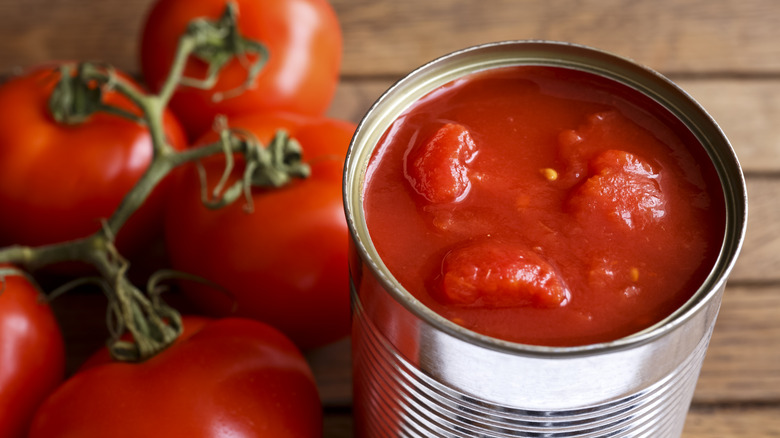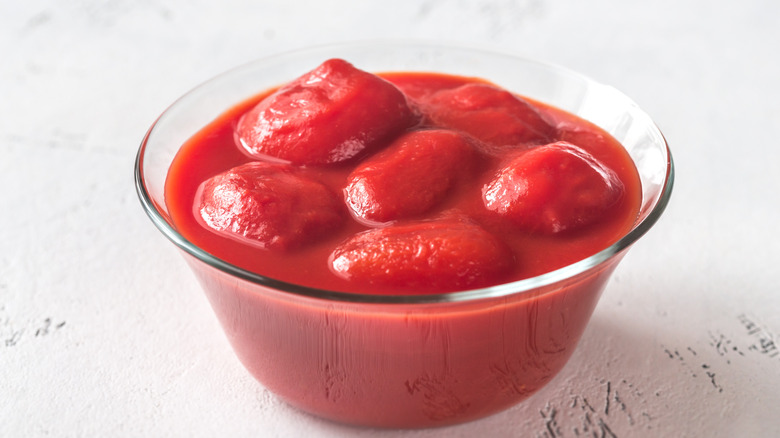Are Expensive Canned Tomatoes Really Better Than Store-Brand? An Expert Weighs In
We may receive a commission on purchases made from links.
Hitting your maximum grocery budget can happen quickly, placing scrutiny upon every item on the shopping list. That's when you might wonder if there's any taste difference between generic and name-brand items, especially with considerable price differences from one can to another. It's understandable to question whether expensive canned tomatoes are better than store-brand or other less-costly offerings. For a closer look at that, we reached out to an expert in the nuances of canned tomatoes: Danny Freeman, Author of "Danny Loves Pasta."
With a shout-out from the likes of celebrity chef Giada De Laurentiis, who calls Freeman an edible artist for his playful handmade pasta designs, it's a good bet he knows a thing or two about making sauces. In a nod to famously delicious Italian tomatoes, Freeman first points out the obvious, "Most Italian cooks will tell you to look for certified San Marzano tomatoes, which will have a DOP designation on the can." A DOP label means the tomatoes come from a protected designation of origin, known in Italian as Denominazione d'Origine Protetta. With San Marzano tomatoes, that's the Agro Nocerino Sarnese region of Campania, where geography and agricultural regulations play a big role in the resulting flavor and quality.
Freeman explains how San Marzano canned tomatoes are known for their sweetness and fleshy texture, which makes them perfect for sauces. But that's not the whole story — he puts a twist on the subject with an unexpected perspective on canned tomato origins and styles.
Choosing between whole, diced, or crushed canned tomatoes
As a DOP brand, San Marzano tomatoes thrive under extra care and attentive growing practices — but it inevitably results in higher prices for consumers. Are those pampered, protected, red beauties worth the splurge? Surprisingly, Danny Freeman offers a slight variation from mainstream thinking. "The truth is," he says, "many non-San Marzano tomatoes taste just as good (including some grown in the U.S.!) and can be much less expensive."
For example, tomato farmers in California supply an estimated 95% of processed tomatoes in the United States, and many chefs prefer making sauces with California brands such as organically-grown Bianco DiNapoli tomatoes. Others praise the merits of mainstream canned tomato brands, including store brands such as Target's Good & Gather or Kroger's Private Selection of canned "San Marzano style" tomatoes. "In my opinion, the tomatoes from an expensive brand are often a bit richer and sweeter," Freeman says, "but it's not always a big enough difference to justify the price, especially if you make a lot of tomato sauce!"
Regardless of the brand, he specifies that the type of canned tomatoes is crucial, meaning how they're processed. Instead of diced or crushed tomatoes, Freeman recommends buying whole peeled tomatoes, and here's why: Companies typically use their best tomatoes for these cans, and then crush what's left. "Your best bet is trying different brands at different prices, finding one you like, and sticking with that!"

